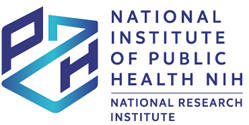RESEARCH PAPER
Antibacterial and antifungal activities of Moroccan wild edible plants selected based on ethnobotanical evidence
1
Laboratory of Anthropogenetic, Biotechnologies and Health, Department of Biology, Faculty of Sciences, Chouaib Doukkali University, El Jadida, Morocco
2
Laboratory of Control Quality in Bio-control Industry & Bioactive Molecules, Department of Biology, Faculty of Sciences, Chouaib Doukkali University, El Jadida, Morocco
3
Department of Biology, Laboratory of Biotechnology, Materials and Environment, Faculty Polydisciplinary of Taroudant, Ibn Zohr University, Agadir, Morocco
Submission date: 2024-07-21
Final revision date: 2024-08-08
Acceptance date: 2024-08-09
Online publication date: 2024-09-10
Publication date: 2024-12-23
Corresponding author
Abdelghani Aboukhalaf
Department of Biology, Laboratory of Anthropogenetic, Biotechnologies and Health, Faculty of Sciences, Chouaib Doukkali University, El Jadida, Morocco
Department of Biology, Laboratory of Anthropogenetic, Biotechnologies and Health, Faculty of Sciences, Chouaib Doukkali University, El Jadida, Morocco
Rocz Panstw Zakl Hig 2024;75(3):229-236
KEYWORDS
TOPICS
ABSTRACT
Background: Despite the extensive literature focusing on identifying novel antimicrobials of plant origin, little work has been undertaken to examine the antimicrobial activity of wild edible plants. Objective: The current research aimed to determine the in vitro antimicrobial activity of methanolic extract of some common wild edible plants. Material and Methods: Disc diffusion and broth micro dilution methods were used to evaluate the antimicrobial activity of extracts of Mercurialis annua, Ziziphys lotus, Rubia peregrina, Origanum vulgare, Papaver rhoeas, Foeniculum vulgare, and Dysphania ambrosioides against known human microorganisms’ pathogens. Results: The result indicated that most of the extracts exhibited a range of in vitro growth inhibitory action against all bacterial strains and yeasts tested with inhibition zones ranging from 11 mm to 32 mm, MIC value ranging from 0.048 to 50 mg/ml and MBC and MFC values ranging from 0.048 to 100 mg/ml. Among the seven plant extracts tested, O. vulgare was the most effective showing high antimicrobial activity against all tested microbial strains. All plant extracts exhibited bactericidal activities against all the tested bacteria strains except for those of R. peregrina, P. rhoeas and F. vulgare which showed a bacteriostatic activity against E. coli and Pseudomonas sp. Antifungal activity was shown only by O. vulgare, F. vulgare and D. ambrosioides against both C. albicans and C. neoformans. Conclusions: These findings highlight the potential of wild edible plants to control human pathogenic microbes and demonstrate that these plants could be used as starting points for the development of novel antimicrobial compounds.
Share
RELATED ARTICLE
We process personal data collected when visiting the website. The function of obtaining information about users and their behavior is carried out by voluntarily entered information in forms and saving cookies in end devices. Data, including cookies, are used to provide services, improve the user experience and to analyze the traffic in accordance with the Privacy policy. Data are also collected and processed by Google Analytics tool (more).
You can change cookies settings in your browser. Restricted use of cookies in the browser configuration may affect some functionalities of the website.
You can change cookies settings in your browser. Restricted use of cookies in the browser configuration may affect some functionalities of the website.



